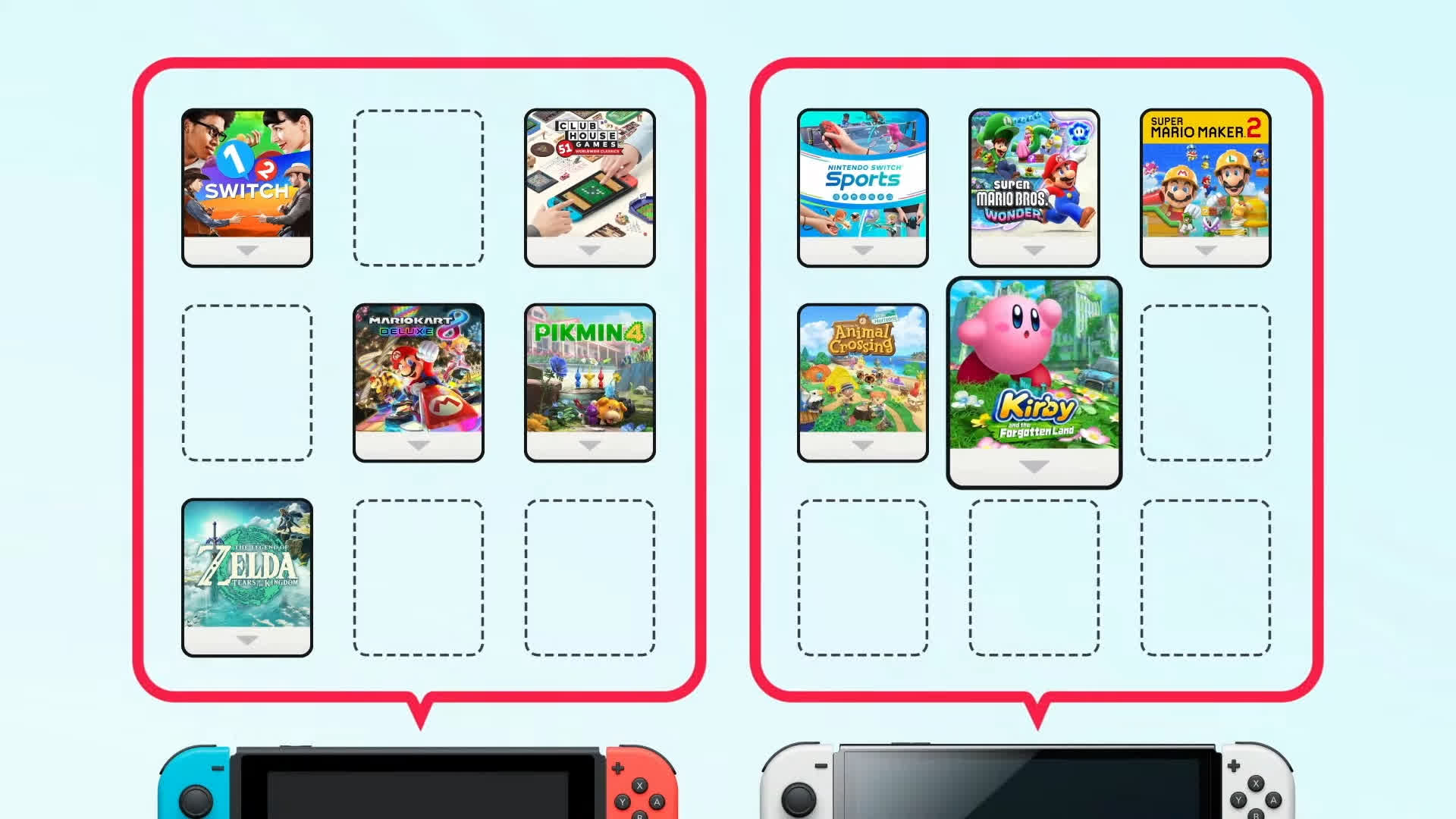Why it matters: Digital game purchases offer the convenience of instant gratification without leaving your couch, but they lack the portability of physical media. Nintendo wants to make it easier to play your digital library from any system with Virtual Game Cards.
For the first time ever, Nintendo is hosting two Nintendo Direct events almost back-to-back. The first was today, featuring everything coming to the Switch (masthead). The second is set for April 2 – less than a week away. That one will focus solely on the upcoming Switch 2.
Aside from several new games and just about as many remasters, today's Direct introduced an interesting new concept called "Virtual Game Cards." It's a more streamlined way to share digital games between devices.
Virtual Game Cards make digital purchases work more like physical media. Users with a second Switch can quickly transfer purchased games back and forth after a one-time local verification handshake between devices. It is a universal feature, so it will work for standard, Lite, and Switch 2 variants. Additionaly, since the Switch 2 is backward compatible, the feature will make game migration a breeze.
The feature also provides a way to share games with friends or family. Users can have up to eight devices in their Nintendo Family Group. Owners can "loan" games to anyone in that group, with a few significant limitations.
First, the two devices must be on the same WiFi network during the exchange. After that, the game is playable anywhere. Second, users can lend their friends only one game at a time. Unlike physical titles, users cannot just transfer their library to a friend en masse. Third, loaned games are good for 14 days. After that, the card automatically returns to the lender. Lastly, users cannot play games they have loaned out.
Similar to physical media, a virtual card represents the game license, not a copy of it. The feature enforces this restriction even when the user owns both systems. For example, transferring Metroid Prime 4 from your Switch to your Switch 2 means it is no longer available on the first device until you move it back. This issue should not be too troublesome as long as the the interface is as simple as moving a game from one box to another.
Nintendo Virtual Cards will not revolutionize digital downloads or make virtual libraries better than owning physical games. However, it does take some of the headaches out of Nintendo's digital rights management scheme. It should also make it much easier to make the switch to the Switch 2 (pun intended).
Nintendo Virtual Cards are coming to first-gen systems in late April via a software update and will be available on Switch 2 at release. Watch next week's Nintendo Direct for an official launch date.
Nintendo will soon let you loan your digital games to your friends

